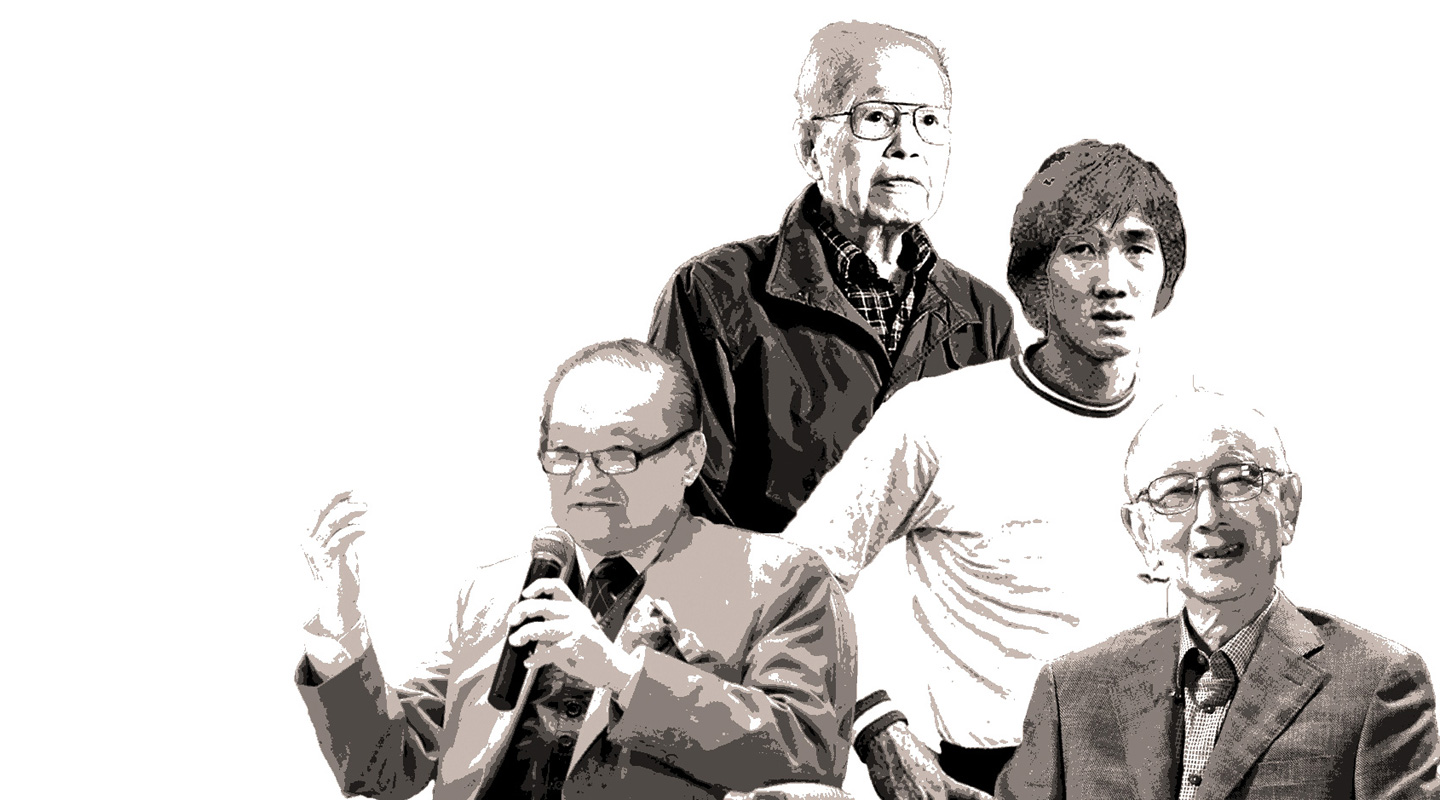Dear readers, With the launch of e-newsletter CUHK in Focus, CUHKUPDates has retired and this site will no longer be updated. To stay abreast of the University’s latest news, please go to https://focus.cuhk.edu.hk. Thank you.
The Unwaning Legends

2018 saw Hong Kong bid farewell to many illustrious personalities whose lives are deeply intertwined with the city. An admirable attempt to pay tribute to these extraordinary lives and times was made by the Shaw College’s four-part assembly series ‘Great Lives, Great Ideas: Echoes from the Past’. Mr. Ivan Choy, the mastermind of the retrospective, said, ‘Not only are these personages well-known, but they signify the golden age of Hong Kong. Our students may feel unfamiliar with these giant silhouettes of the past century, but if we invite experts to illuminate their lives and the era they shaped, students could gain insight into the evolution of our home city.’
The inaugural talk, ‘Chow Chee-keong and His Football Era’, was delivered by Prof. Lui Tai-lok, Vice President of The Education University of Hong Kong and a self-proclaimed football fan on 8 March. Chow Chee-keong (1948–2018), the Malaysian-Chinese footballer who was considered Asia’s greatest goalkeeper, reached the pinnacle of his career from 1971 to 1974 as he played for South China in the local league. The football craze then, Professor Lui says, had to do with the willingness of club owners to invest in the teams and the economic model at that time—when people went off work early enough to go and watch football matches. The owner-centric system, however, proved both boon and bane, as the team’s survival depended much on the owner. The rise of televised football in the nineties also changed watching habits, dealing the last blow to the local football ethos.
In her talk on ‘Jin Yong and the Eighties’, Dr. Margaret Ng draws a fine distinction between Louis Cha (1924–2018) the intellectual and Jin Yong the novelist. His 15 martial arts novels, produced under Cha’s pen name Jin Yong in 15 years since 1955, create an imaginary homeland where the Chinese diasporic subjects may reconcile themselves to their Chinese roots. And a romantic world it is, where ideals like honour and fidelity reign, and the heroes actualize themselves as moral and spiritual agents at the turning points of history. Contrary to the aspiration for freedom Jin Yong demonstrates, Cha the newspaperman takes a more conservative stance. He asserts democracy does not sit well with Hong Kong and is going to wreak havoc on the city’s prosperity and way of life.
Next, Prof. Wong Nim-yan of the Department of Chinese Language and Literature reveals the promiscuous side of Liu Yichang (1918–2018)’s writerly career in ‘All Memories are Sodden: Liu Yichang and Hong Kong Literature’. To survive on the margins of life and make room for penning his experimental novels—amongst them The Drunkard and Intersection, Liu made the compromise of producing a plethora of romance and erotic dime novels. The study of Liu’s erotica, Professor Wong thinks, will land us in an advantageous position to understand the sacrifices the writer had to make in order to follow his vocation.
Beyond these men of letters, the series also ventures into the movie realm by having esteemed film critic and researcher Mr. Po Fung recount the success story of Raymond Chow (1927–2018), the legendary film producer who re-enacted the story of David and Goliath. Golden Harvest, the film company founded by Chow in 1970, effectively ended Shaw Brothers Pictures’ decades-long grip on the industry and market. Mr. Po ascribes the movie mogul’s success to his discovery of Bruce Lee, the martial arts superstar who lifted the company’s fortunes, the absorption of talents from Shaw Brothers, flexible modus operandi like the dividend model, and the making of Cantonese movies that resonate with the Cantonese-speaking public. The big names we know nowadays, including John Woo, Sammo Hung, Jackie Chan and Michael Hui are spotlighted by this much revered ‘godfather of the Hong Kong film industry’.
When asked if such a success story can be replicated, Mr. Po plainly says ‘no man ever steps in the same river twice’. One can, however, take home an important lesson from Chow: to play to the winds coming in whatever direction, and zigzag diplomatically to the goal.
Translated by Amy Li
This article was originally published in No. 539, Newsletter in Jun 2019.